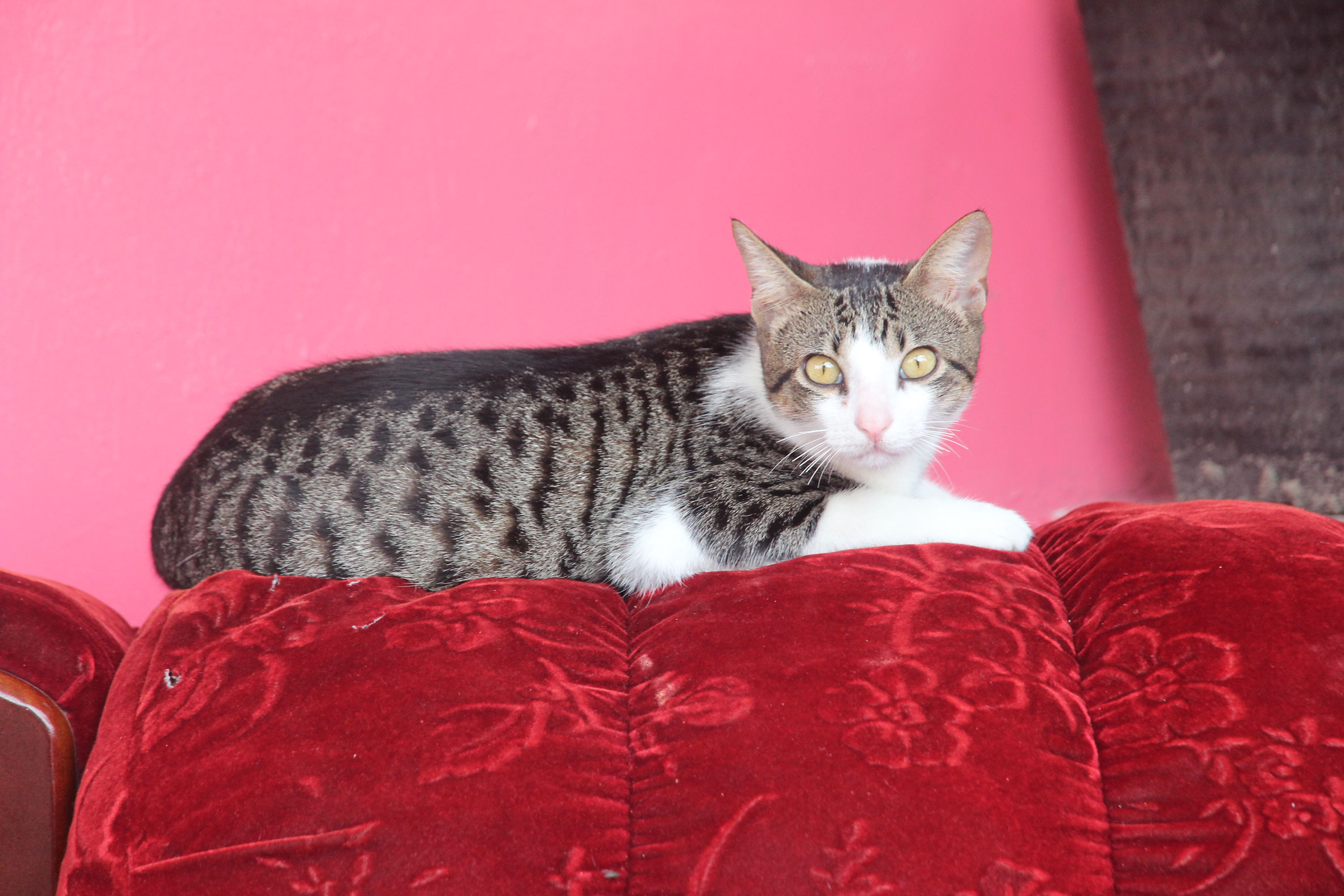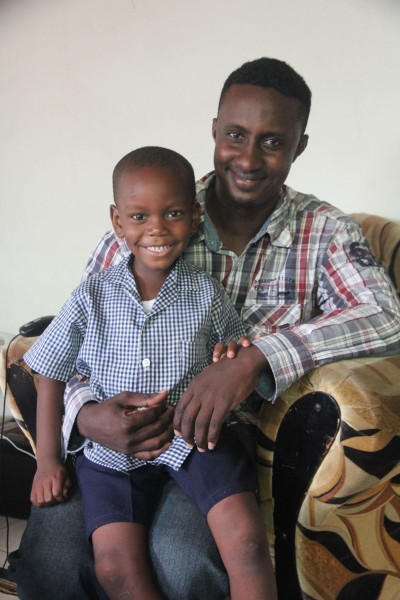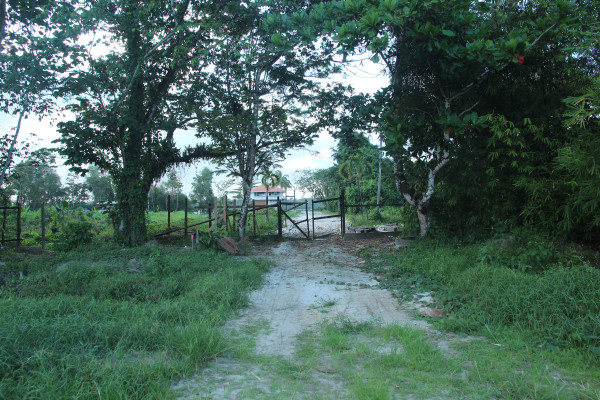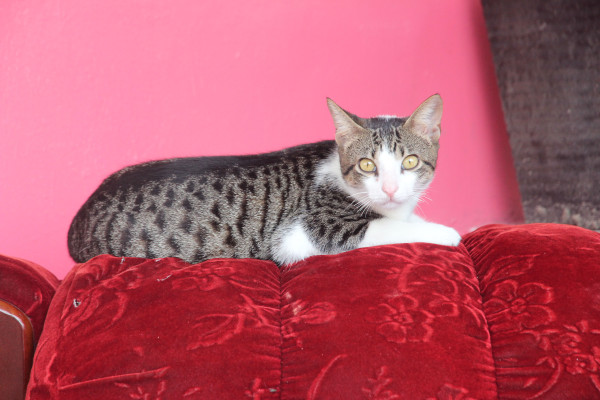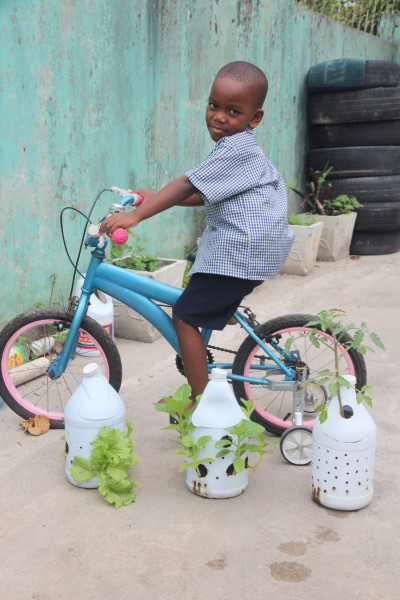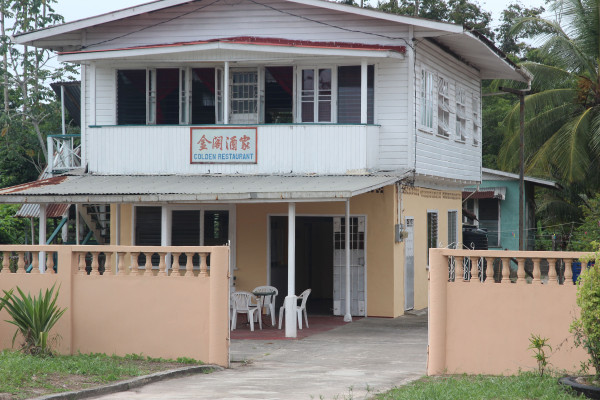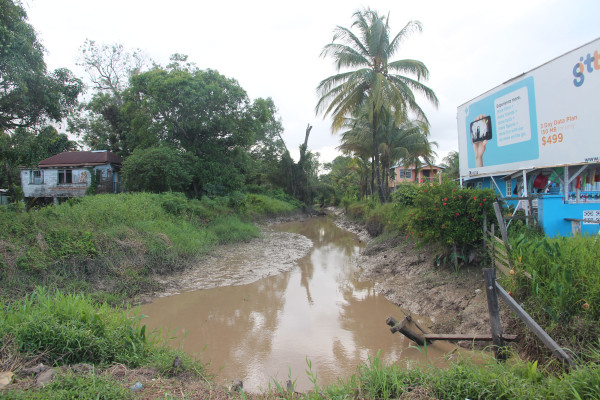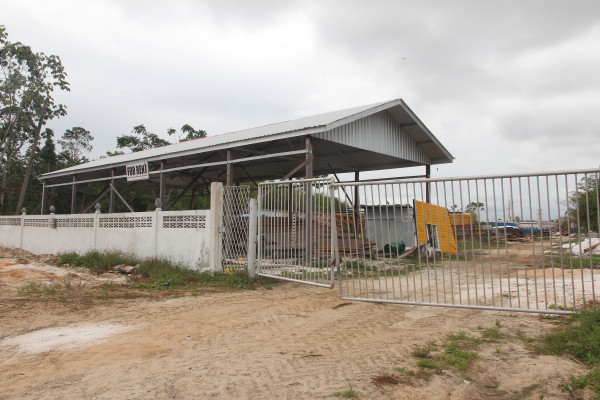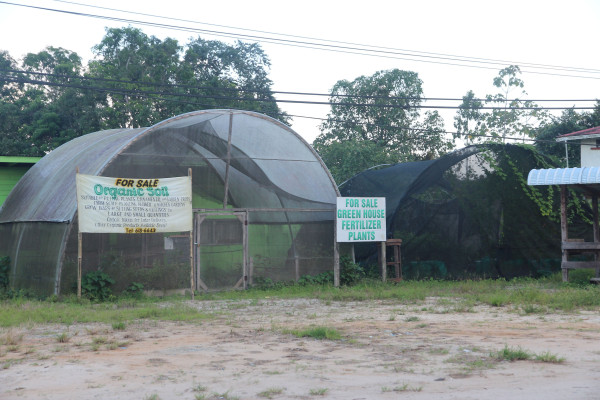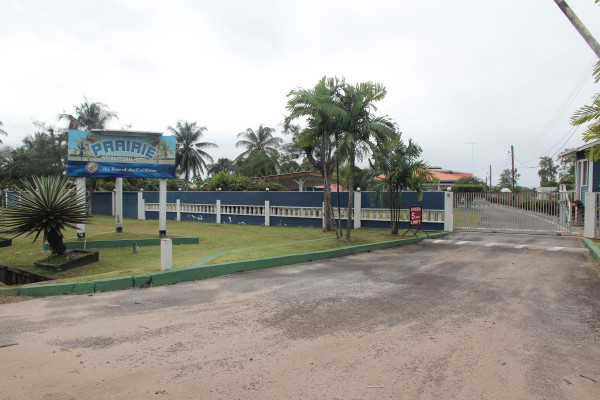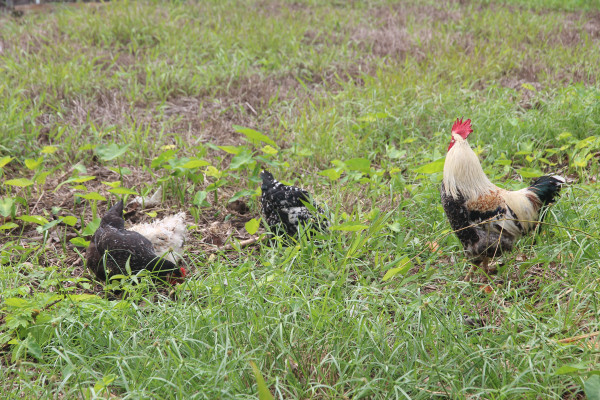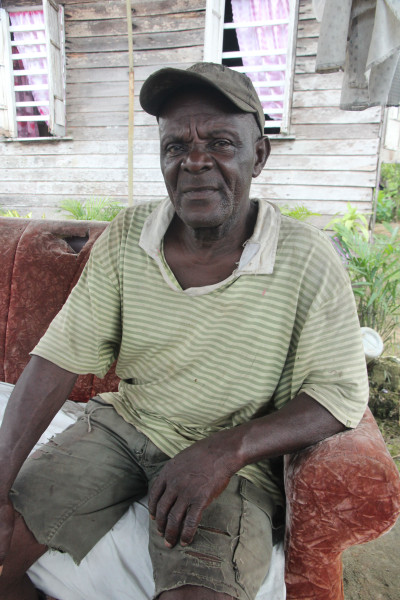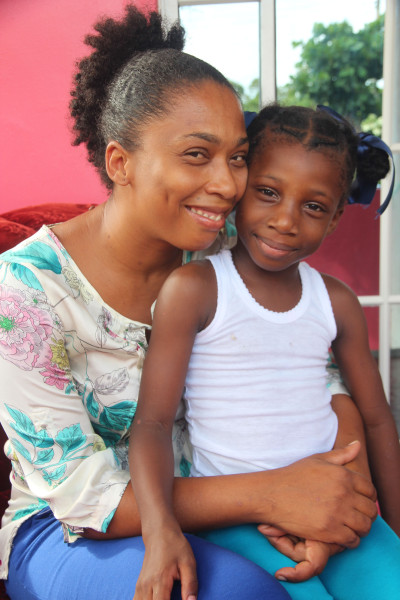There is an air of quiet. Most houses are closed; their occupants are off at work and school. The yards are thick with plants and here and there gigantic trees stick out; some are broad and covered in leaves, others just scrawny. Hens and roosters scratch for grain, dogs prowl about and cats stretch out lazily in the sun. A few brightly-painted shops are open, awaiting customers. Pump attendants at a gas station get busy as buses file in. Some distance away, a sawmill teems with life and much noise. And on the main road trucks honk their horns and vehicles speed by. This is Coverden.
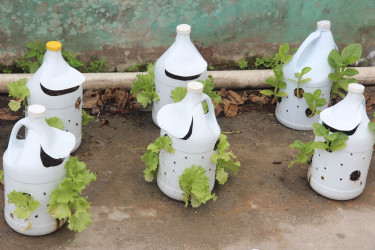
as plant pots
At Jermine Munroe’s yard, there are hanging plants in bleach bottles. Munroe lives with his wife, a cousin and a nephew whom he takes care of. He moved to Coverden two years ago from Wortmanville, Georgetown. He was preparing for his afternoon shift at the Guyana Revenue Authority at Timehri. He said he moved from the city because he wanted to get into a life of farming.
“I started rearing chickens in town… but once I got into it, I liked it. Then once I got into chickens, I was curious about farming, hence the hydroponics,” Munroe said. He’s experimenting with hydroponics before he decides if he should go bigger. Currently he has planted a small amount of lettuce, callaloo and tomato. Although he has no meat birds now, he still rears them.
He has all of the services he would have had in the city: electricity, potable water, access to internet, telephones and street lights. He adds, “There’s an advantage in rearing chickens in Coverden since we have sawmills to provide us with shavings and feed suppliers are nearby also.”
As we speak little Lavone sits eating his lunch having just come from school; he leaves with his uncle. But before he goes, he shows off a few of his plants.
Walking along the East Bank Public Road, we pass by a Baha’i Institute tightly shut, but its surroundings are well kept.
In a yard where a few chickens scratched in the dirt, Shawn Chung walked about spraying to keep the weeds down. Forty-one-year-old Chung was born and grew up here. According to him, Coverden’s population of approximately 250 persons is made up mainly of families.
“Mostly family live in this village. Everything the young people want to do to develop themselves, they got to leave the village,” Chung said. He talked about the idea of having a sports club in the village. This he said would help to keep youngsters occupied. “You don’t find nobody from the village office come around to ask what problems we have here. Since I live here, I think it’s one time it [referring to the drains] ever dig,” he lamented continuing with his spraying.
In a yard with possibly the most flowers in Coverden, Shondell Bernard, daughter of one of the earliest families here, the Thomas family, was inside with her daughter, Yolanda, who had just returned from school. Asked about the plants in the yard, Bernard smiled proudly, “I’m so into planting. I plant every single thing in this yard. I just love planting.”
But she said losing her parents a few years ago took away some of the fun she found in planting. She also rears meat birds but did not have any at the time.
“My mom and dad did it [reared chickens] for ten to fifteen years,” she said. She took up the business four years ago. She also has two sons.
Bernard said her sister once studied at the Baha’i Institute. “I think they did yoga or meditation too,” she added. She isn’t sure if the doors are open to the public anymore.
Another fading landmark is the nearby Prairie Hotel. She recalled, “I would often see [flight] crew and pilots stay there.”
Bernard is peeved about transportation and the prices being hiked sometimes. “I wish if the government could provide a big bus for the people this side. The fare was once $160, but now it’s $200 and sometimes at nights and on holidays they [bus drivers] exploit us making us pay as much as $300 to $400.”
Having a teenage son and a daughter she wishes for a place where they can socialize and play. “We’re a family-oriented village. I got my daughter. I would like a nice playfield for the young children to play on or a sports club for the youths.”
Leon Layne, a pensioner and relative of Bernard’s who lives a few lots away was clearing his kitchen garden, which he said is just to take care of him and his family. According to Layne, the village is named, Te Huis Te Coverden. That was [a corruption of] the Dutch name but people just called it Coverden for short. I’ve known the name since school.
“Long ago Coverden just had a few houses, mainly the old people. Farming then was the main occupation. Today we have doctors, technicians, nurses and teachers.”
Layne pointed to a farm filled with bushes and trees. The land is his but he hasn’t farmed there since the nineties. “I get too old to farm and take care of the younger boys in the village who helped themselves to the produce my farm once had. People have developed themselves but the moral[s] fall a lot. The parents were very strict and they had control over their children. Times have changed”, he lamented.
“What we’d like to see is these big buses coming back [to facilitate] persons who can’t take the big booming and speeding of the minibuses. We need proper drainage and we need the cooperation of the police. Somebody [had] stolen from my farm before. When I reported to the police, the man just pay something and gone his way. We don’t get back our farm produce either. The law states that if you catch a man stealing green plantains and if it ripe in the station, I can’t get it back because I would have reported that green plantains were stolen and not ripe ones,” said Layne.
According to him, the first few families to have lived here would be the Clarks, the Colliers and the Thomases.
Most of Coverden is not occupied. “The land can’t be sold because they’re children property, so I’d like to see persons who have gone abroad come back and take up the lands,” Layne said.
The village also has a wash bay, a bread shop, a wood exporting company, a church, four kokers and other shops. But Layne said, “Coverden is for people who like the quiet life. After the evening come, you don’t see a lot of people on the road.”
Walking on to capture a bit more of Coverden on camera, the World Beyond Georgetown ran into two nephews of landowner Dr Charles; they were trying to upkeep their late uncle’s property. According to one nephew, his uncle had purchased a part of Coverden, Den Heuvel and Soesdyke.
